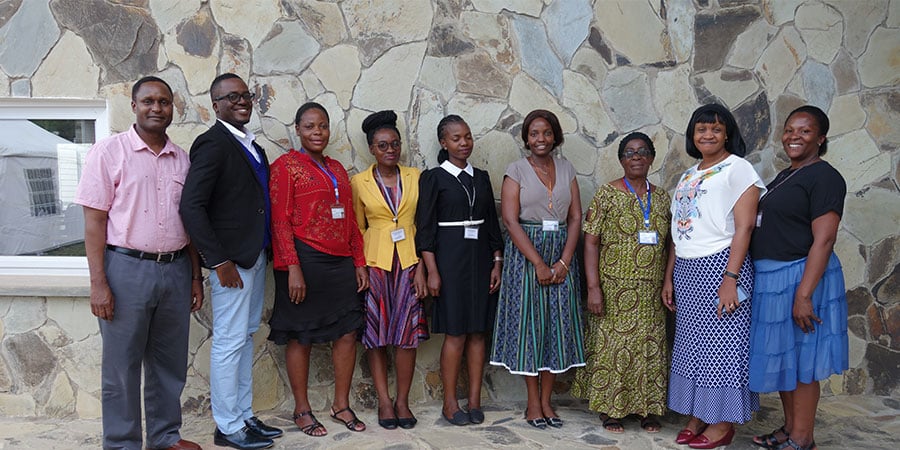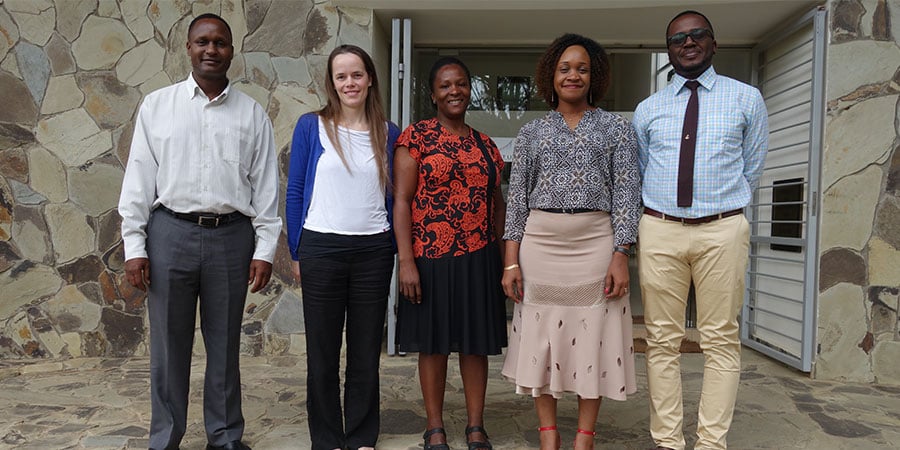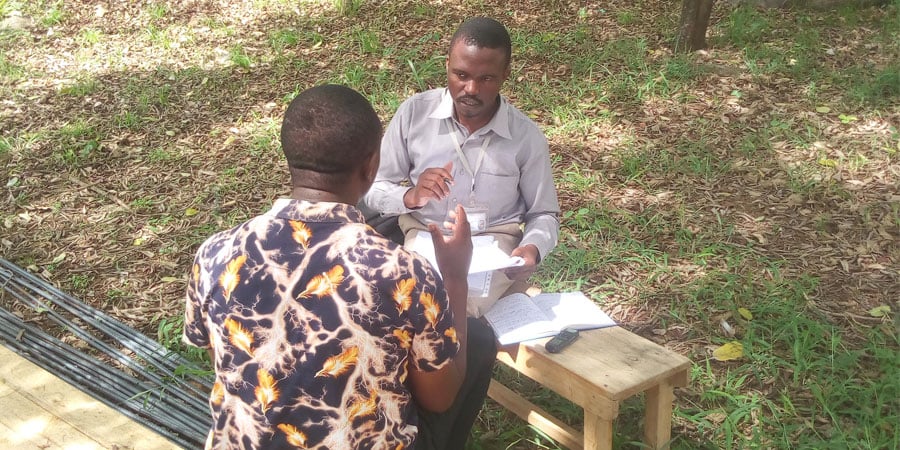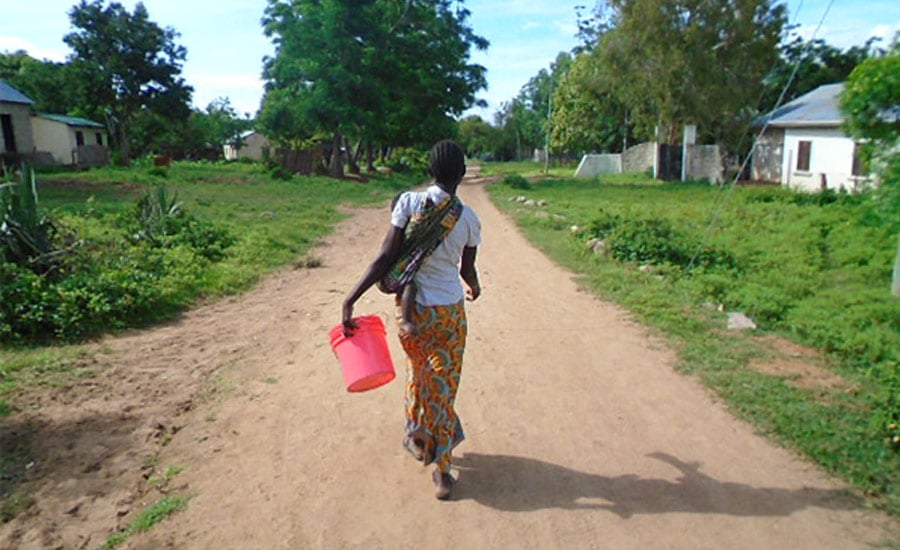
IPV Tanzania
Investigating the predictors of intimate partner violence: A mixed method longitudinal study in Tanzania
Advancing the theoretical underpinning of intimate partner violence, by investigating the temporality of its key factors, mapping its dynamics over time and investigating the pathways leading to it.
IPV_Tanzania is a mixed-methods cohort study, with 4 waves of quantitative data collection, 3 waves of qualitative data collection, and participatory qualitative methods.
IPV_Tanzania is jointly led by social epidemiologist at LSHTM and an anthropologist at the Mwanza Intervention Trials Unit.
Recent updates
Events
Newsletter
Contact us
Gender Violence & Health Centre
London School of Hygiene and Tropical Medicine

This study is one of the largest quantitative and qualitative longitudinal studies on intimate partner violence with multiple time points among women of reproductive age in a low income country. Applying a holistic approach, the study is not limited to information from woman only, it will also interview men qualitatively and quantitatively on their perceptions, predictors and consequences of intimate partner violence.
Objectives
The primary objective of the study will be to investigate the predictors and consequences of intimate partner violence in Tanzania over time, focusing specifically on women’s economic empowerment, poor mental health and alcohol abuse as predictors and consequences of intimate partner violence.
The specific aims of the study are:
- To map out the changes in the incidence and intensity of physical and/or sexual intimate partner violence over time and to explore overlaps with and changes in emotional and economic abuse and controlling behaviour.
- Investigate how changes in the incidence and intensity of intimate partner violence impact alcohol abuse, poor mental health and women’s empowerment over time, with a special focus on the interactions between intimate partner violence and stressors and benefits of participation in microfinance loan groups.
- Explore the effect of cumulative intimate partner violence at all time points on women’s mental health, alcohol abuse and economic empowerment.
- Establish the pathways though which the selected indicators lead to intimate partner violence and vice versa.
- Explore the mediators that influence the relationship between intimate partner violence and women’s mental health, alcohol abuse and economic empowerment.
As most theories on intimate partner violence originate from high income countries, this study has the strong potential to have a long-lasting impact on shaping the research agenda on intimate partner violence. It is of immediate necessity to address a vital public health challenge of our time.

Recent updates
Events
Newsletter
Contact us
Gender Violence & Health Centre
London School of Hygiene and Tropical Medicine

IPV_Tanzania is jointly led by Dr Heidi Stöckl (LSHTM) and Dr Gerry Mshana (MITU), in partnership with the National institute for Medical Research.
Dr Heidi Stöckl, Associate Professor in Social Epidemiology, is the Director of the Gender Violence and Health Centre in the Department of Global Health and Development at the London School of Hygiene and Tropical Medicine, the Head of the WHO Collaborating Centre on Gender-based Violence and an Honorary Senior Lecturer in Clinical Medicine at the University of Witwatersrand. She has extensive experience in survey and qualitative research.
Dr Gerry Mshana is a Principal Research Scientist at the National Institute for Medical Research (NIMR) in Mwanza, Tanzania and a senior researcher at the Mwanza Intervention Trials Unit. He is a medical anthropologist with more than 17 years research experience on adolescent sexual and reproductive health, the socio-cultural aspects of HIV/AIDS and male circumcision.
Professor Saidi Kapiga is the current Scientific Director of the Mwanza Intervention Trials Unit (MITU) and a Professor of Epidemiology and International Health at the London School of Hygiene & Tropical Medicine (LSHTM). He has more than 28 years public health research experience, with particular interests on investigating the individual risk factors and underlying structural factors associated with HIV in Africa, and evaluation of prevention strategies.
Sheila Harvey is an epidemiologist and Associate Professor in the Department of Global Health and Development at the London School of Hygiene & Tropical Medicine. She has more than 20 years experience in health care research, including HIV prevention, gender-based violence, critical and emergency care, and child health. She has collaborated on, and coordinated, clinical and social intervention trials and other epidemiological studies, in a variety of healthcare settings in both low- and high-income countries.
Asungushe Kayombo is a registered medical doctor with postgraduate training in research ethics, epidemiology and biostatistics. He is the study manager and deals with the day to day issues of the study.
The study is supported by the amazing, dedicated and hardworking field team at the Mwanza Intervention Trials Unit.
The project is part of the Gender Violence & Health Centre.
Recent updates
Events
Newsletter
Contact us
Gender Violence & Health Centre
London School of Hygiene and Tropical Medicine

This study comprises a four-wave longitudinal quantitative study of 1200 women, a longitudinal qualitative study of 18 women, a cross-sectional study of 1000 men, a qualitative study of 30 men and photo-voice participatory activities with 16 men.
Four-wave quantitative study of 1200 women
In total, 1200 women in Mwanza will be followed up longitudinally. These women have participated in the control groups of the recently completed Maisha trials, and include women participating in microfinance groups and women who are not members of microfinance groups. Women who receive microfinance loans and women who do not were clustered in 60 groups of approximately 20 women each. The study utilizes the baseline and follow-up surveys of women in the control group and conducts two additional surveys for each woman, resulting in four interviews per woman.
Qualitative longitudinal study of 18 women
The qualitative longitudinal follow up will establish women’s perception on the pathways and patterns on how aspects of women’s economic empowerment, poor mental health and alcohol abuse affect the occurrence of relationship conflicts and intimate partner violence, with a specific focus on key life events as mediating factors and their understanding of different forms of intimate partner violence. The qualitative follow up will thereby provide new insights to inform theoretical developments by highlighting the interconnections and mediators between known risk and protective factors for intimate partner violence, apart from informing the quantitative study and assist in interpreting its findings.

Cross-sectional survey of men
For the quantitative survey, men representative of the general population of Mwanza will be recruited from administrative wards that have not been involved in the MAISHA trial to prevent any actual or perceived overlap between the female and the male study sites. We anticipate to recruit 1000 men to conduct a baseline survey investigating the prevalence and associated risk and protective factors for intimate partner violence.
Qualitative in-depth interviews with men plus photo-voice
For the qualitative study, we interviewed 30 men purposively sampled from the general community in Mwanza. They were representative of the general ever-partnered male population of Mwanza in terms of their socio-economic status and occupations. The men were interviewed in-depth about their life-time experiences of violence, with a focus on intimate partner violence and its measurement. A sub-set of men also participated in a photo-voice exercise to better understand their lives and relationships.

Recent updates
Events
Newsletter
Contact us
Gender Violence & Health Centre
London School of Hygiene and Tropical Medicine
